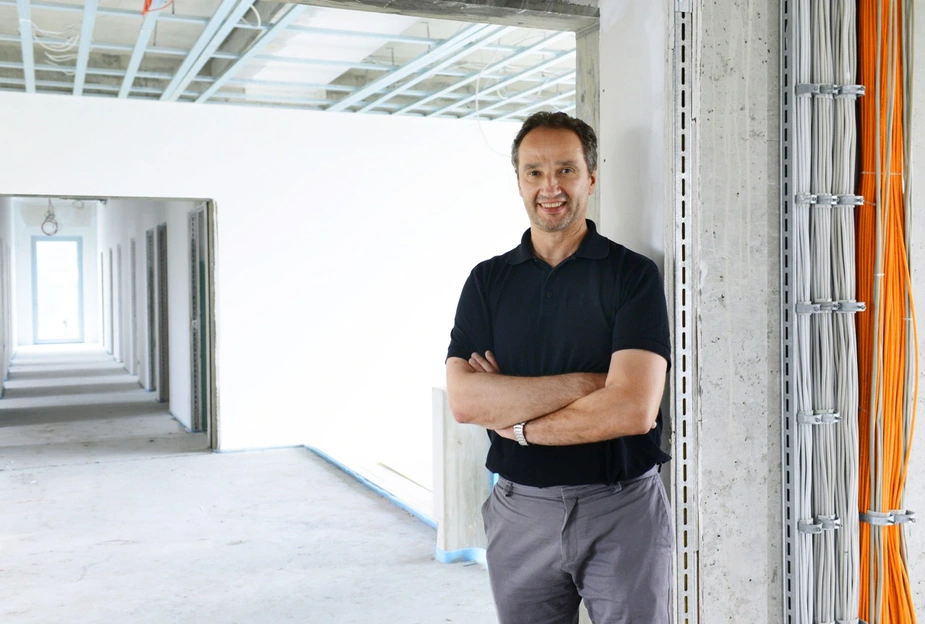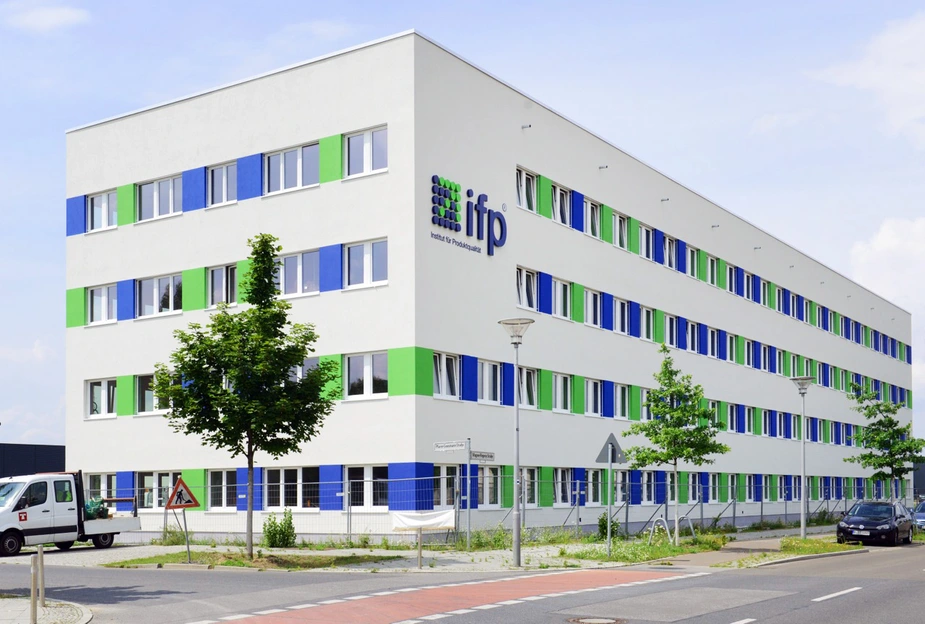Reunited in Adlershof
ifp Institute for Product Quality in the new building end of 2014
"Travel connections couldn't be any better," says Dr. Wolfgang Weber, managing director of ifp Institute for Product Quality. At the end of 2014, his business will relocate to an impressive new building on Wagner-Régeny-Straße. It's only one hundred meters to the S-Bahn, the next motorway access is one kilometre away, and it takes less than ten minutes by car to get to Berlin's future major airport.
At a total cost of approximately 11 million euros, the new building provides the solution to a dilemma. Until now, the institute was divided into two locations, one in Steglitz and one in Adlershof. In the future, the new Tshaped building made up of a four-storey main building and a two-storey wing will accomodate all 160 employees. "In addition to the excellent travel connections, it was the science location's good reputation that won us over,“ Wolfgang Weber explains his reasons for relocating the institute's headquarters to Adlershof. "Add to that a reasonable real estate price.“
Dr. Wolfgang Weber founded ifp in 2004. Born in Suabia, he studied food chemistry at TU Berlin where he also obtained his doctorate. After working in various jobs and doing research, the food chemist developed a high-speed process for the detection and identification of watersoluble B vitamins. Unlike the lengthy processes hitherto existing, Weber's rapid tests yield results within no more than one or two days. Meanwhile, test kits are being sold across the world and further lines have been added.
Today at ifp, ingredients are being analysed on behalf of food producers, caterers and pharmaceutical companies worldwide with ifp experts identifying allergens, genetically altered organisms, pathogenic agents, mould toxines or pesticide residue. In 2013, the institute was able to detect non-declared horse meat in ready-made meals. Media response was huge and even end-consumers learned about the ifp. In fact, private households too are regular customers as they can have the quality of their drinking water determined by obtaining a test kit by mail.
After its foundation in Berlin-Steglitz the ifp grew rapidly and kept expanding its portfolio. When space became sparse in 2012, part of the personnel was moved to Adlershof. "This was no permanent condition," Weber admits. As of 2015, the institute will be reunited in Adlershof, ready to grow even further. In fact, Weber expects to be able to hire another 100 employees in the midterm. If all goes to plan, he will have a second block added parallel to the current main building. "The current T-shape will then turn into an H, once again almost doubling in size".
By Mirko Heinemann

